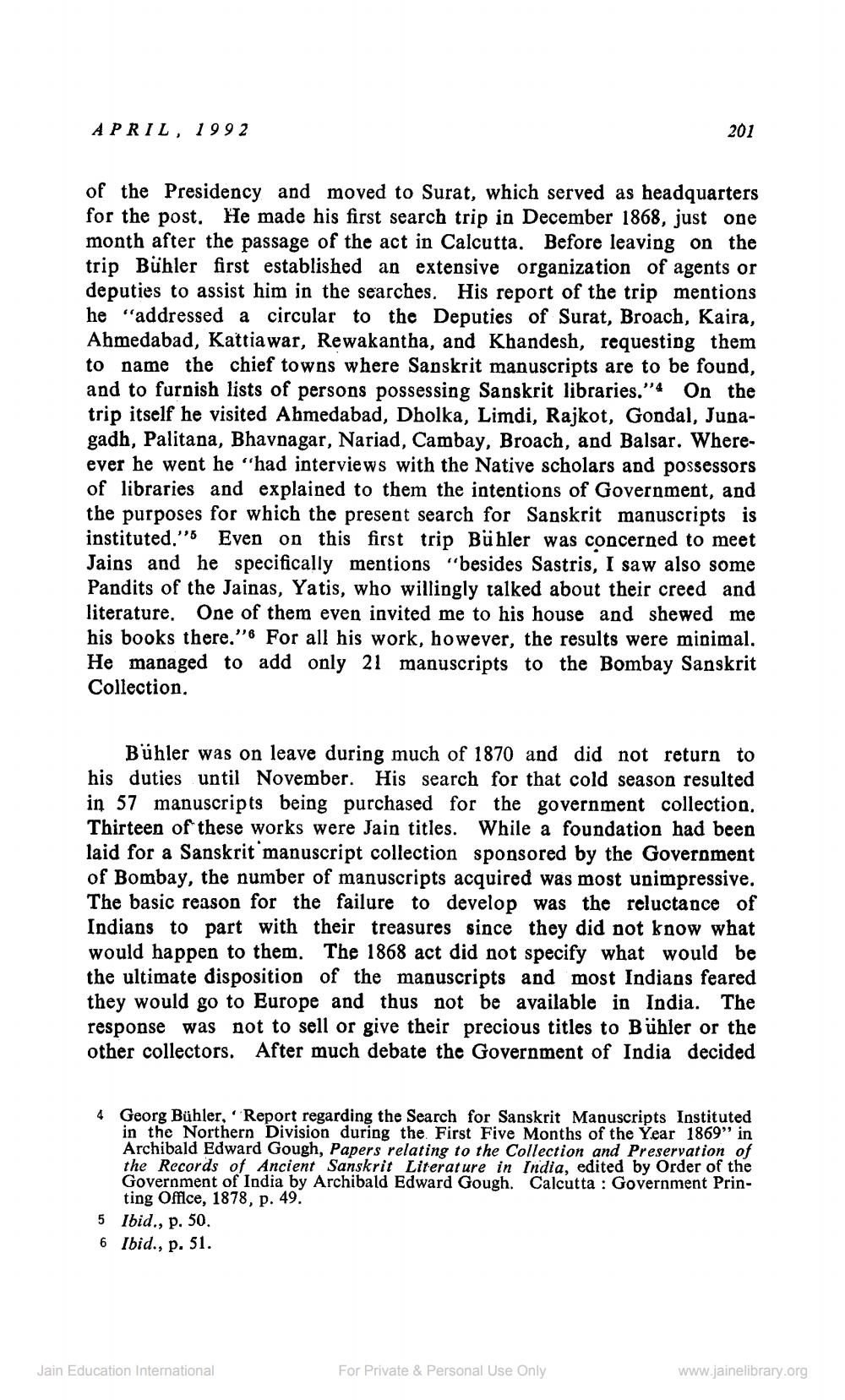________________
APRIL, 1992
201
of the Presidency and moved to Surat, which served as headquarters for the post. He made his first search trip in December 1868, just one month after the passage of the act in Calcutta. Before leaving on the trip Bühler first established an extensive organization of agents or deputies to assist him in the searches. His report of the trip mentions
"addressed a circular to the Deputies of Surat, Broach, Kaira, Ahmedabad, Kattia war, Rewakantha, and Khandesh, requesting them to name the chief towns where Sanskrit manuscripts are to be found, and to furnish lists of persons possessing Sanskrit libraries."4 On the trip itself he visited Ahmedabad, Dholka, Limdi, Rajkot, Gondal, Junagadh, Palitana, Bhavnagar, Nariad, Cambay, Broach, and Balsar. Whereever he went he "had interviews with the Native scholars and possessors of libraries and explained to them the intentions of Government, and the purposes for which the present search for Sanskrit manuscripts is instituted.” Even on this first trip Bühler was concerned to meet Jains and he specifically mentions "besides Sastris, I saw also some Pandits of the Jainas, Yatis, who willingly talked about their creed and literature. One of them even invited me to his house and shewed me his books there." For all his work, however, the results were minimal. He managed to add only 21 manuscripts to the Bombay Sanskrit Collection,
Bühler was on leave during much of 1870 and did not return to his duties until November. His search for that cold season resulted in 57 manuscripts being purchased for the government collection, Thirteen of these works were Jain titles. While a foundation had been laid for a Sanskrit manuscript collection sponsored by the Government of Bombay, the number of manuscripts acquired was most unimpressive. The basic reason for the failure to develop was the reluctance of Indians to part with their treasures since they did not know what would happen to them. The 1868 act did not specify what would be the ultimate disposition of the manuscripts and most Indians feared they would go to Europe and thus not be available in India. The response was not to sell or give their precious titles to Bühler or the other collectors. After much debate the Government of India decided
4 Georg Bühler, Report regarding the Search for Sanskrit Manuscripts Instituted
in the Northern Division during the First Five Months of the Year 1869" in Archibald Edward Gough, Papers relating to the Collection and Preservation of the Records of Ancient Sanskrit Literature in India, edited by Order of the Government of India by Archibald Edward Gough. Calcutta : Government Prin
ting Office, 1878, p. 49. 5 Ibid., p. 50. 6 Ibid., p. 51.
Jain Education International
For Private & Personal Use Only
www.jainelibrary.org




